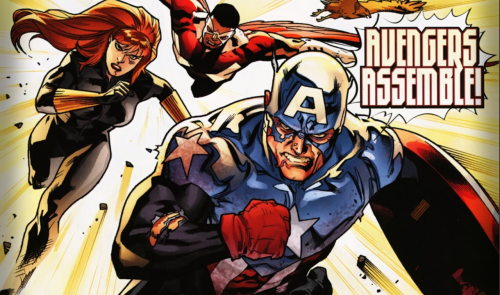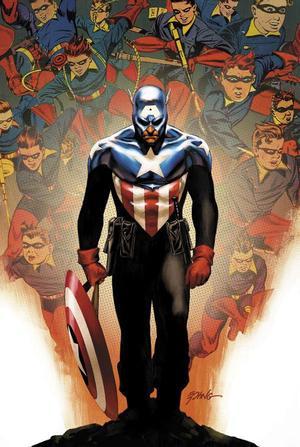Back in the day, right after Ellen Degeneres came out, her sitcom did an episode wherein Ellen was essentially transported to a world run by straight people, where gay people were the minority. It was meant to be social commentary, I guess, but I was a teenager at the time and the main thing I remember thinking was that it wasn't very funny.
Since then, I've read a lot of those kinds of social commentary, mostly feminist or anti-feminist dystopian fiction about societies run by women. With mixed results. Most of them aren't very good. I think it may be a genre I'm predisposed not to like, because I don't need to have reality turned on my head in order to show me that it's ridiculous. I know it's ridiculous. I don't need to have my power-holding group turned into the marginalized group so that I can wake up to my own privilege, because I'm aware of both my privilege and marginalization based on the various labels I slap on (and that are slapped onto me).
Then again, we can all use a reminder from time to time. Which is probably why I still reads/watch those kinds of stories. Plus, it can be fun to see the Oppressor become the Oppressed. Even if it's just for fiction. I'm human.
Over the past few days on Twitter, I'd seen a few people discuss this comic called Our Love is Real. I had no idea what the plot was, but I picked up from the context of the tweets (and who was tweeting them) that there was some sort of social and/or political message that had to do with sexuality and/or gender.
So I gave in and bought it last night.
[Technical tangent!] Incidentally, this is the fist comic I have bought and read using comiXology. I don't have an iPad, but I do have an iPhone 4. I know some people might be worried by the smaller screen size, but I found it a total pleasure to read the book. The GuidedView actually added a fun new aspect to reading, and the art looked crisp and "lifelike". I am the kind of person who loves technology, though, so take my rave review of the app (and it is rave, I may go to digital-only when I start reading regularly again) with a grain of salt.
[Non-technical point of the post!] This story takes place in some sort of undisclosed future, "five years after the AIDS vaccine". On its face, it's a story about a dog-loving cop who enjoys beating on veggie-loving deviants, then gets his world turned upside down when he meets a crystal-lover named Brin. And by loving, I mean having-sex-with. Our unhero has a girlfriend named Chynna, who is a poodle. They have sex, and this is considered the norm. He beats on people who alter plants so they can have sex with them, and then he meets someone who finds the idea of physical sex disgusting, because sex with a crystal is so much better.
Still with me?
It's also a social commentary (obviously) and... kinda a love story, too.
I really enjoy the art style, which makes Jok, the unhero, look like an overgrown bully and Brin like his polar opposite. I particularly noticed the really nice style during a fight scene towards the end of the book. I went back and read it a second time because I liked it so much. And I'm notoriously picky about fight scenes. So I'll say that Steven Sanders' art is right up my alley and is definitely a plus to the book (and it looked great on my retina display thingie).
There are a few plot holes that have more to do with world-building than anything else, and that I can forgive because it's a one issue sorta thing. For instance, I wonder how the human race procreates if the accepted sexuality is bestiality. I just assume that there are some people who still have sex with humans. Maybe there is a caste system, and all the cops happen to be into dogs. I don't know. Maybe if we saw more of this world, we'd get more answers.
The issue I've always had with these kind of stories is that you have to get past this ridiculous idea that will probably never happen, and the story that's told has to be universal anyway. That's sort of the deal with all science fiction and fantasy, but this subgenre of speculative fiction takes it to a whole new level. Do I really believe that five years after we eradicate AIDS we'll suddenly be a society that is okay with bestiality? Nooooo. Do I accept bestiality as a stand-in for homosexuality? Noooo.
[Tangent!] There are always issues of consent when something like bestiality comes up, and I think OLIR skirts them by imbuing the only dog we actually see with some form of intelligence and the context of genetically altering sexual artners, the way the "veggie sexuals" do. Maybe these particular dogs can consent, which is why it's become an accepted, non-deviant sexuality. I don't think that's the point of this story, though. I really don't. [End tangent!]
I don't have to accept one as a stand in for another. Because bestiality and homosexuality both exist in this world. And Jok makes it known that he has a bitch at home. His dog's a lady. And he's actually uncomfortable at the idea of being sexually attracted to males. About as uncomfortable at the idea of being attracted to humans, anyway.
This setting also allows Humphries and Sanders to play around not only with our preconceived notions of sexuality, but also gender. Does the fact that your partner may have two genders (a plant) or no genders (a crystal) make a difference? Does your gender matter if your partner is a tree?
I liked Our Love is Real because it created a world that made these questions come up, and forced the readers, even if only in a small way, to consider their views on deviant behavior. But when we put our preconceived notions of gender and sexuality aside, where do we end up?












